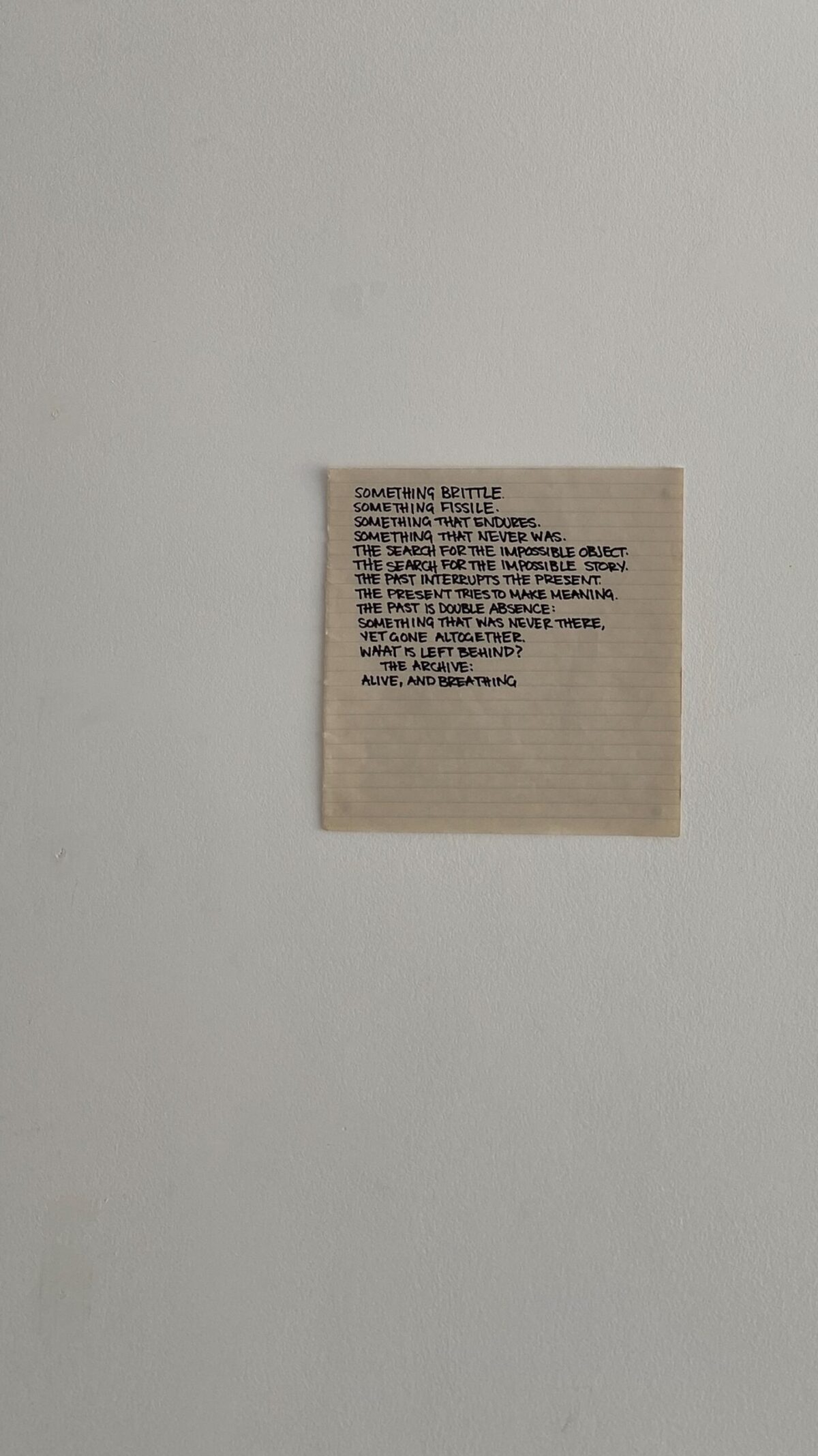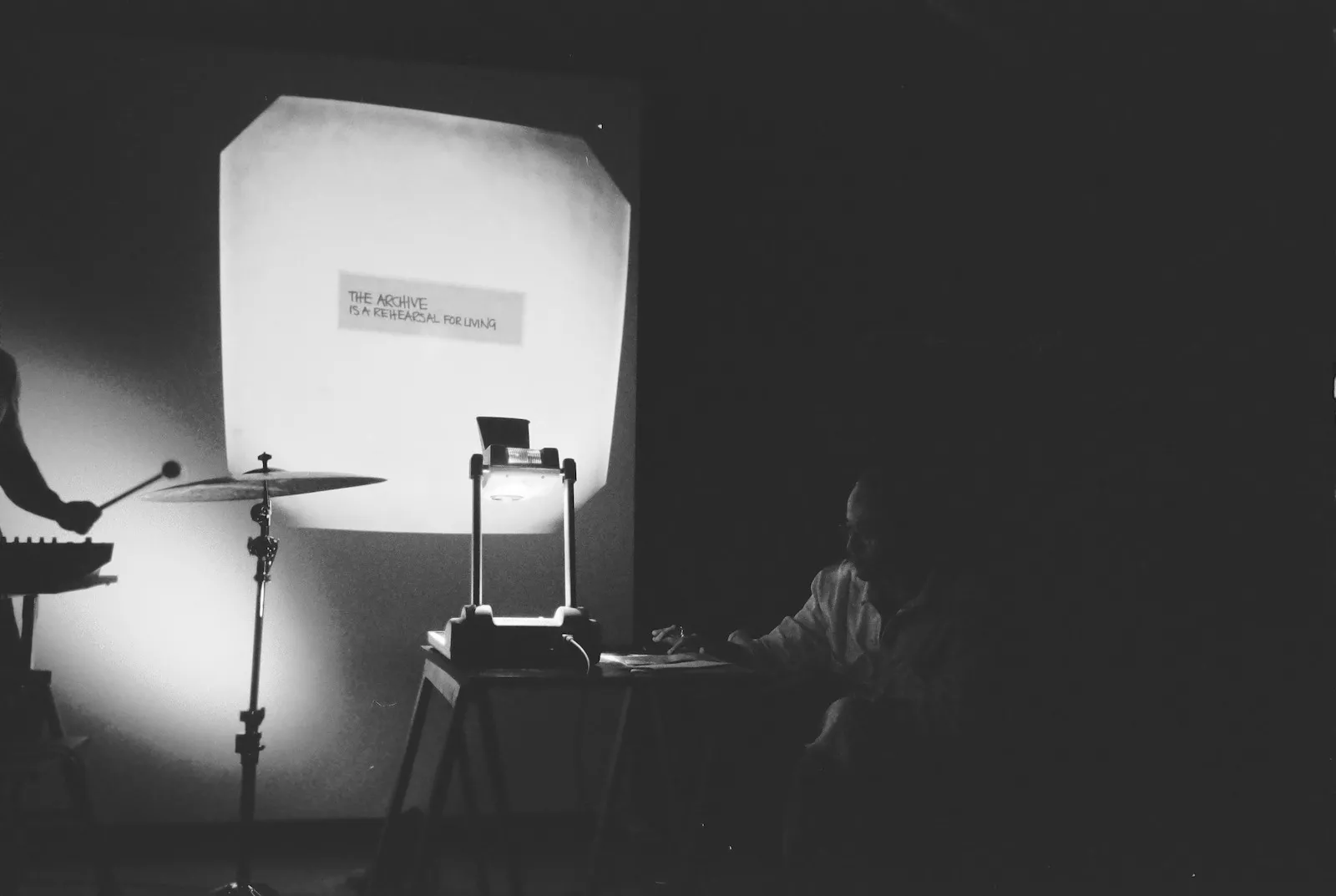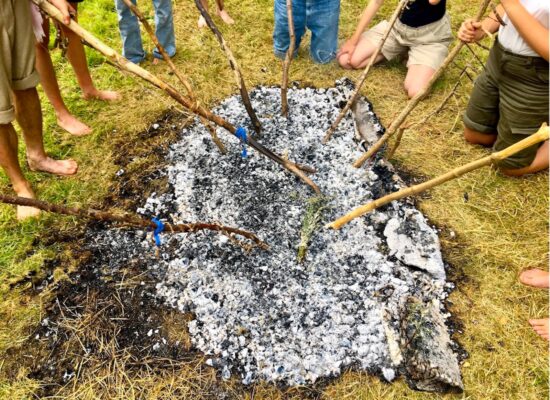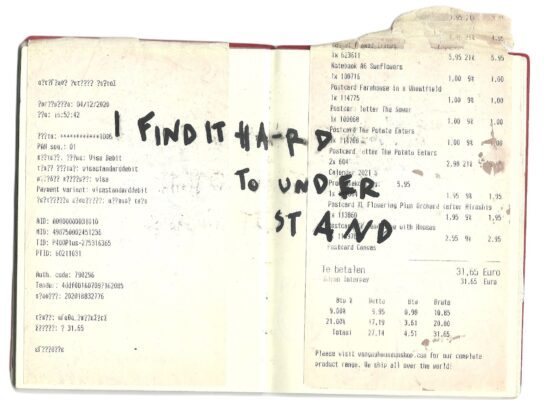Based in between Amsterdam, Netherlands and Nicosia, Cyprus
Website https://www.gervaises.com
Research project FISSILE MATERIAL
Location Nicosia, Cyprus; seed-funding from the Institute of Advanced Teaching and Learning, University of Warwick.
Can you describe your research project?
At its precipice, the archive is a meeting point: the search for the fragmented archive.
In Spring 2022, I began formulating an intimate, interpersonal diagram, with seed-funding provided by the Institute of Advanced Teaching and Learning, at the University of Warwick. The project is an ongoing artistic and theoretical attempt to animate various archival threads in the context of my immediate locality: Nicosia, Cyprus. By entangling the practice of curious student, poet, and speculative historiographer, this work picks at the seams of a normative ‘archival impulse’ (Foster, 2004). Or perhaps posed differently, my approach is rooted in posing aporias; demystifying the afterlives of Cypriot displacement. My interest in stories from the margins of sociality is predicated on their reconstitution as fundamental strands of resistance to the state’s intentionally fragmented archive.
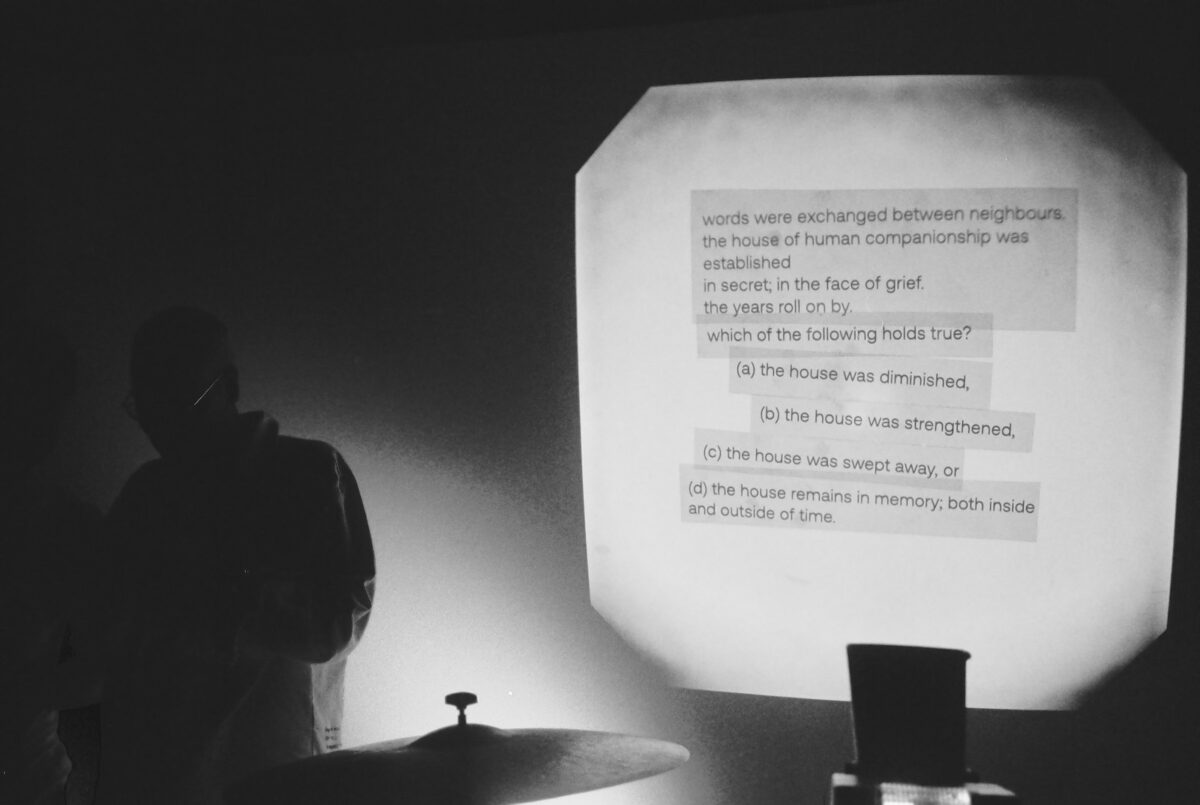
Why have you chosen this topic?
This project was the result of a dual desire: an attempt to assuage a personal experience of loss and grief, and to unearth counter-histories of communality pre- and post- division of the island of Cyprus in 1974. Equally, prior to the enactment of this research work, it became increasingly apparent that oral histories are relegated to the graveyard of memory; altogether forgotten to the violence of (white) time and hegemonic clock-time. As such, my entanglement with oral histories (through conversation; neighbourhood gossip) has been foregrounded in observing how the echoes of a fractured ensemble ought to be understood as intrinsic archival material – an interconnected body of history, rather than bound to spatiotemporality. The foundations of this project rest in a desire and urge to resist individualism as an organising logic, and in turn, enshrine the importance of communal memory and knowledge; our rehearsals in living.
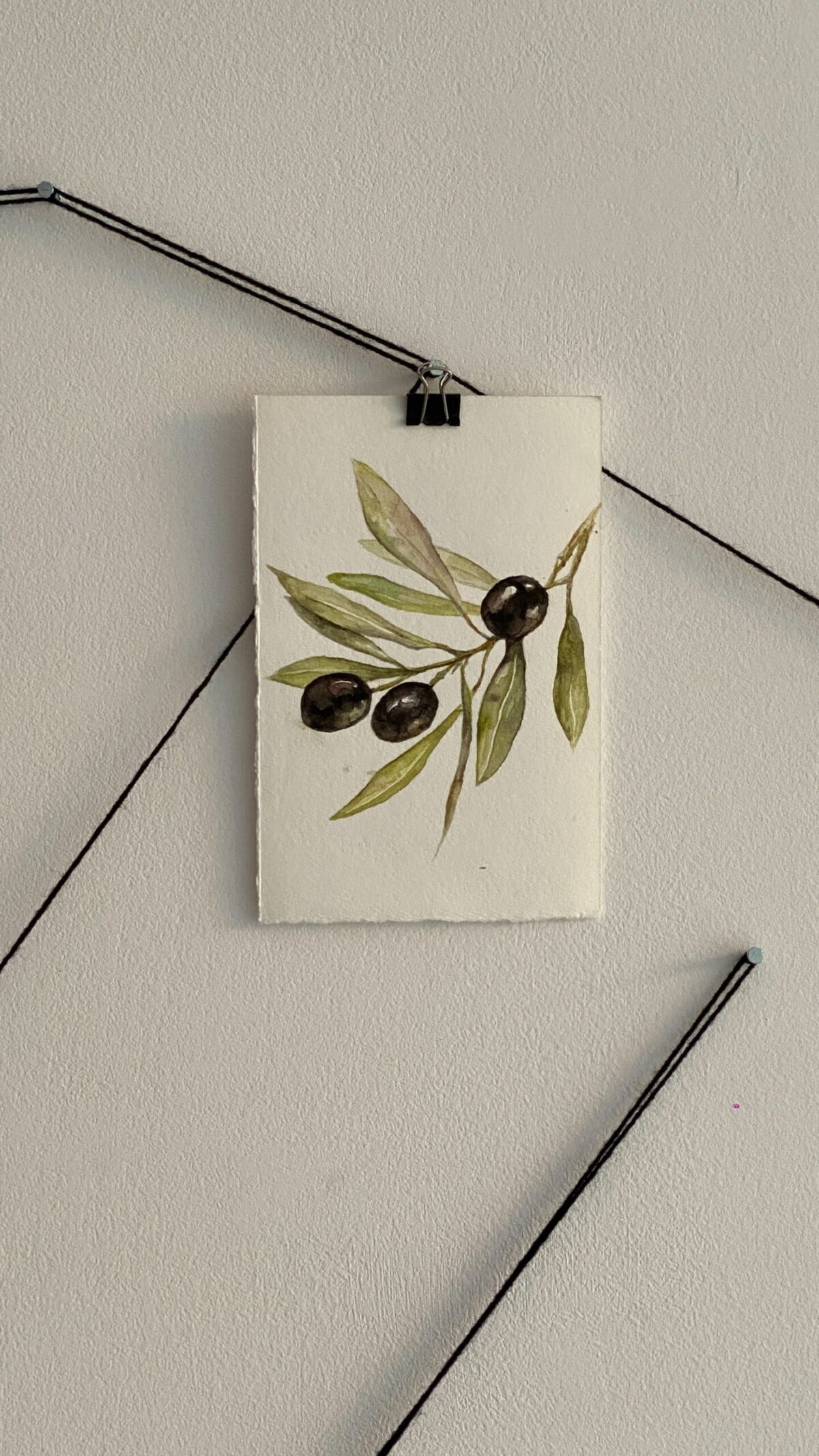
What research methods do you use?
This work has been predominantly underscored by an interest in social disobedience, and by that metric, observing language as noise—with the innate ability to interfere, disrupt and resist. Equally, my curiosity with aurality emerged through the opportunity of this research work, recognising its innate ability for communing and collective. In Summer 2022, I carried out a series of interviews with my immediate locality, offering space for them to reflect on archiving as a practice; food and cultural practices as intrinsic to weaving community together; displacement as a lived experience and its effect on togetherness. Compiling a variety of samples from these interviews, I worked alongside sound artist Marcos Shukouroglou to produce a soundscape.
At the outset of this project, I was always intrigued by the possibility of inviting others to contribute to this wider reflexive attempt; to share the stories unearthed. In August 2023, I was invited by ENDROSIA to present a series of interconnected experiments and meanderings on (self)archiving. The exhibition was inspired by my research work, a flirtation with curiosity, critical theory and my immediate locality. The exhibition text reads: “FISSILE MATERIAL is the cumulation of a long-term research project undertaken by Gervaise Alexis Savvias. The search for an impossible object is a reminder that the past is double absence: gone, or perhaps never there in the first place. Yet, the present/future is consistently interrupted by the past. The interpersonal is woven in relation to the archive –– both as an abstraction and as subject matter. An assorted accumulation of fragmented material coalesces in order for an archive of locality and Self to emerge; with a fullness of a voice, created out of an experimentation with oral histories, community, and curiosity. It is precisely through a collective approach that counter-histories emerge; the (incomplete) project of the archive endures.” The exhibition, (and by extension, this larger project) was a timely reminder that ‘freedom is a place’ (Gilmore, Bhandar & Tuscano, 2022: 93). Our shared liberation can only be attained if we are cognisant of the oppressive systems that disenfranchise those who already cling to the margins of the archive; ‘history’.
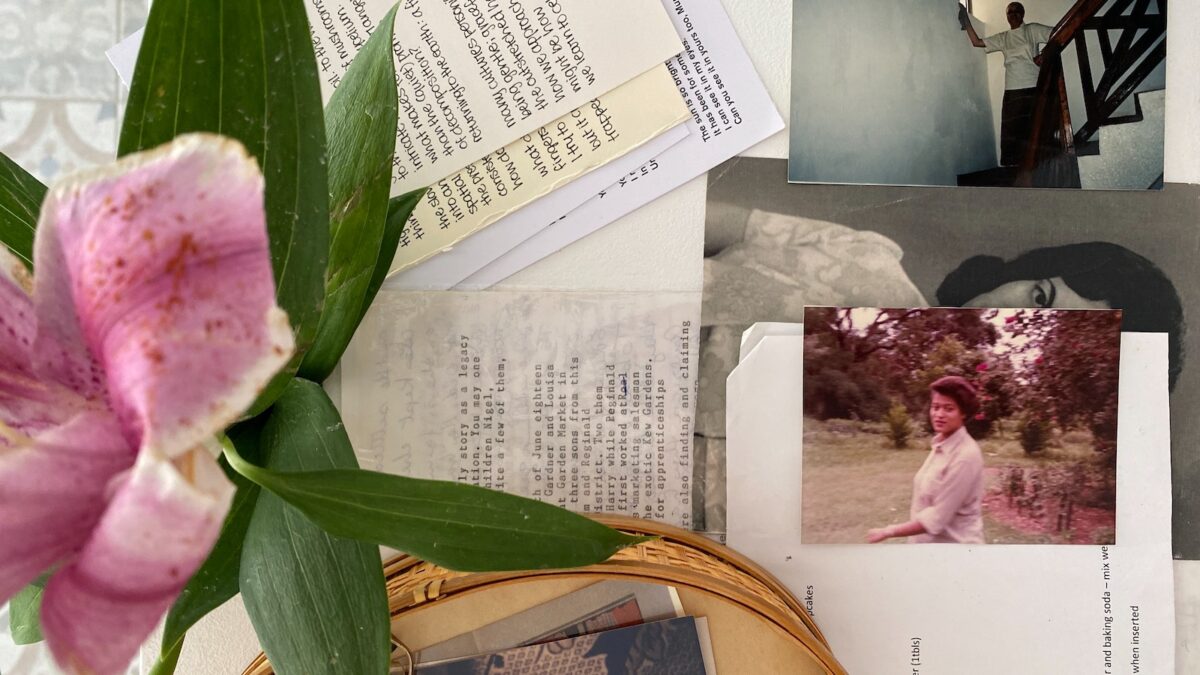
In what way did your research affect your artistic practice?
My practice figures language through its manifold forms: essay, list and litany, poetic and narrative. After all, poeticsm is political. Or, as Césaire sonorously reminds us, ‘a revolution, fundamentally, is collective poetry. It is the highest point of incandescence of the collective personality’ (Frost & Tavárez, 2020: 66). Equally, and throughout this project, I was enamoured with Saidiya Hartman’s concept of critical fabulation. By speculating and stretching the limits of a fragmented archive, one realises that other futures are possible—unbound by the limits and logics of capitalism and neoliberalism. Over the course of this project, I have become increasingly interested in the possibilities enshrined within the sonic sphere. This fascination reverberated in my intimate soundscape work with producer Giorgos Karaolis in the lead-up to my exhibition in August 2023. Through a collaborative, almost-transcendental approach, we created a soundscape presented on the occasion of the opening night of FISSILE MATERIAL.
In June 2024, I self-published a short zine on my research work. Threading together independent field work, political meditations, and an incisive reflection of a personal research-based practice, the publication is an insight into how a radical archival impulse might be nurtured. Through a symbiosis of parapoetics, prose and research, ‘FISSILE MATERIAL’ is a sensitive relation to and exploration of (self) archiving, informed by my personal interaction with my locality’s recollection of 1974; genealogy, and theory. The zine was brought to life alongside Cyprus-based graphic designer, Stelios Ilchuk, and was riso-printed by El Taller multispace. The book was formally launched in late June 2024, alongside an open discussion with Irini Khenkin (artist, curator) and a performative activation with Ichomagnetic Thoughts (Antonia Kattou, Stelios Antoniou) at Thkio Ppalies (an artist-run space in Nicosia, Cyprus).
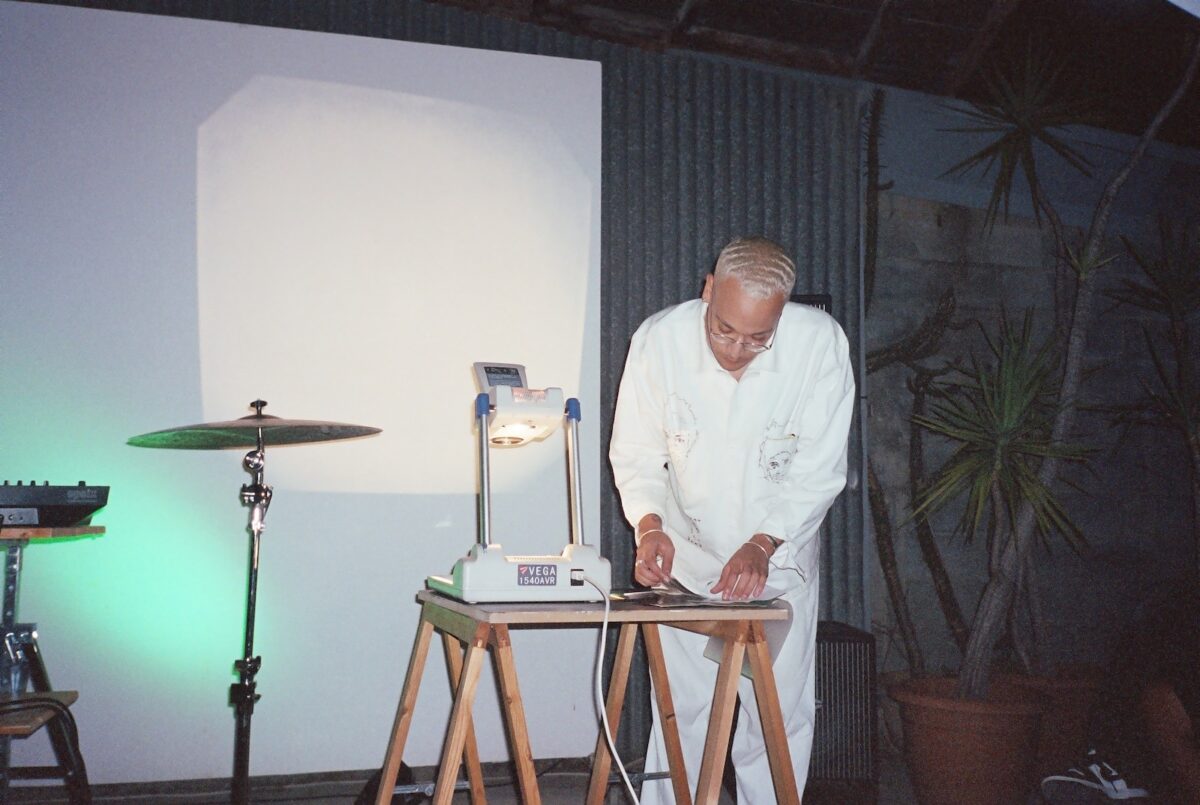
What are you hoping your research will result in, both personally and publicly?
On a personal level, this project has refined a radical positionality in my work and practice; reignited my politics, largely due to the injustices currently taking place in Gaza–only 400km from the island I call home. Our struggles are altogether wound up with one another. And if the archive is “fissile material” (Mbembe, 2019: 172), then what are we doing in the here and now to ensure that our futures remain whole? It is my hope that through this research project, this compilation of theory and reflection, a personal cartography makes itself apparent. Yet, at its precipice, this project is underpinned by the simple premise that learning is a conversation. The question remains: are we listening?
